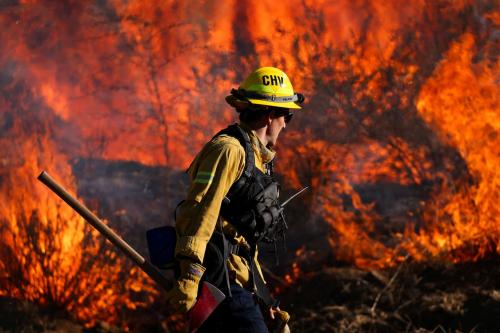MELISSA BLOCK, host:
As the situation in Darfur deteriorates, what should the international community do? Among those advocating military action is Susan Rice. She was assistant secretary of state for African affairs during the Clinton administration. She’s now a senior fellow at the Brookings Institution. Welcome to the program.
Ms. SUSAN RICE: Good to be with you.
BLOCK: You write in an op-ed piece this week that military force is the one language that Khartoum understands. Explain what you mean, please.
Ms. RICE: Well, Khartoum has a long record of making promises to the international community that it then turns around and breaks. This is their pattern. So the time for negotiation, particularly with a completely unreliable partner, is over. They are launching what I’ve called a second wave of genocide and they need to understand that the international community won’t tolerate it.
In the past the government of Sudan has relented when they perceived their interests are at direct risk and in particular when they fear the threat or use of military power. And for the United States and the international community to say to Khartoum let in the U.N. peacekeeping force or face the military consequences, I think that would get Khartoum’s attention and I think that would prompt them sooner or later to reconsider their position and allow the United Nations in.
BLOCK: And what military consequences are you proposing?
Ms. RICE: Well, I think the first thing that the international community ought to do is to strike Sudanese air assets, their aircraft, their helicopters, their airfields, that have been used relentlessly to attack innocent civilians in Darfur.
Another option, albeit more controversial even than airstrikes, would be to blockade Port Sudan. A naval blockade of Port Sudan would prevent Sudan from exporting its oil, from which it derives most of its revenue to carry out its military operations.




Commentary
Military Role in Sudan Crisis
October 4, 2006